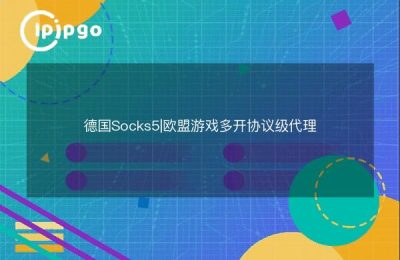
First, Python crawler why need proxy IP
Crawler friends have encountered this situation: the code just run half an hour, the target site prompted "too frequent visits". At this time you will find that their IP address has been blacked out, even if a new account is useless. This is the website anti-climbing mechanism in play -Restrict data crawling by recognizing IP characteristicsThe
When an ordinary user visits a website, there are natural fluctuations in the number of requests generated by the IP address every day. However, the frequency and pattern of visits by crawlers can be easily recognized, and it is necessary to use proxy IP to disguise the real visit behavior as multiple "natural users". For example, if you use the residential proxy IP provided by ipipgo, each request comes from a real home broadband network, which can effectively bypass the website's wind control system.
Second, Python set proxy IP three ways
There are three most commonly used methods for setting up proxies in practice, and they are chosen flexibly according to different usage scenarios:
| way (of life) | code example | Applicable Scenarios |
|---|---|---|
| Requests Library Agent |
import requests
proxies = {
'http': 'http://user:pass@ipipgo-proxy:port',
'https': 'https://user:pass@ipipgo-proxy:port'
}
response = requests.get(url, proxies=proxies)
|
Single Request Proxy Configuration |
| Global Proxy Settings |
import os os.environ['HTTP_PROXY'] = 'http://user:pass@ipipgo-proxy:port' os.environ['HTTPS_PROXY'] = 'https://user:pass@ipipgo-proxy:port' |
Batch Request Unified Proxy |
| session hold mode |
session = requests.Session()
session.proxies.update({
'http': 'socks5://user:pass@ipipgo-proxy:port',
'https': 'socks5://user:pass@ipipgo-proxy:port'
})
|
Scenarios that require session state |
III. Dynamic IP rotation strategy in practice
It's not enough to simply set up a proxy.Timed IP address changeIt's what breaks through the countercrawl. Here is a demonstration of a rotation scheme that incorporates ipipgo's dynamic residential agent:
from itertools import cycle
import requests
Proxy pool from ipipgo
proxy_pool = [
'http://user:pass@proxy1.ipipgo:port',
'http://user:pass@proxy2.ipipgo:port',
'http://user:pass@proxy3.ipipgo:port'
]
proxy_cycle = cycle(proxy_pool)
for page in range(1, 100): current_proxy = next(proxy_cycle)
current_proxy = next(proxy_cycle)
current_proxy = next(proxy_cycle)
response = requests.get(
url, current_proxy
proxies={'http': current_proxy},
timeout=10
)
Process the response data
except.
print(f "Proxy {current_proxy} failed, automatically switching to the next one.")
Dynamic Residential IP Pool Support for ipipgoAutomatic IP switching on request, together with the API interface they provide, can realize smarter IP rotation logic. Their residential proxies come from real home networks with high IP purity, which is especially suitable for crawler projects that require long-term stable operation.
IV. Proxy IP validity testing program
In practice, proxy IPs may fail temporarily. A double detection mechanism is recommended here:
def check_proxy(proxy):
test_urls = [
'http://httpbin.org/ip',
'http://icanhazip.com'
]
for url in test_urls:
try: resp = requests.get(url, proxies=proxy, timeout=5)
resp = requests.get(url, proxies=proxy, timeout=5)
if resp.status_code == 200: return True
except: resp.status_code == 200: return True
continue
return False
Courtesy of ipipgoReal-time availability monitoringThe company's API allows you to get the most up-to-date list of available proxies. Their proxy servers have a built-in auto-culling mechanism to ensure that every IP is available at the time it is assigned to a user.
V. Frequently Asked Questions QA
Q: Do I need to change my IP for each request?
A: It is decided according to the intensity of the target website's anti-crawl. Ordinary websites can be replaced every 5-10 requests, while websites with strict anti-crawl are recommended to be replaced every time. ipipgo's dynamic proxies support automatic rotation on demand.
Q: How to deal with proxy IP failure?
A: It is recommended to establish a pool of proxies and implement validity testing. When encountering a connection timeout or return status code exception, automatically switch to the backup agent. ipipgo's agent availability rate remains above 99%, greatly reducing maintenance costs.
Q: How can I detect if my IP is blocked?
A: If you send the same request three times in a row, and if all of them return 403/429 status code, or a CAPTCHA page appears, you can basically determine that the IP is blocked. At this time, you should immediately stop using the IP and get a new proxy resource through ipipgo.
By reasonably configuring proxy IPs with intelligent rotation strategies and detection mechanisms, you can effectively break through the anti-climbing restrictions of most websites. Choose a website like ipipgo that hasReal Residential IP ResourcesThe service provider can significantly improve the stability and data collection efficiency of the crawler program.








